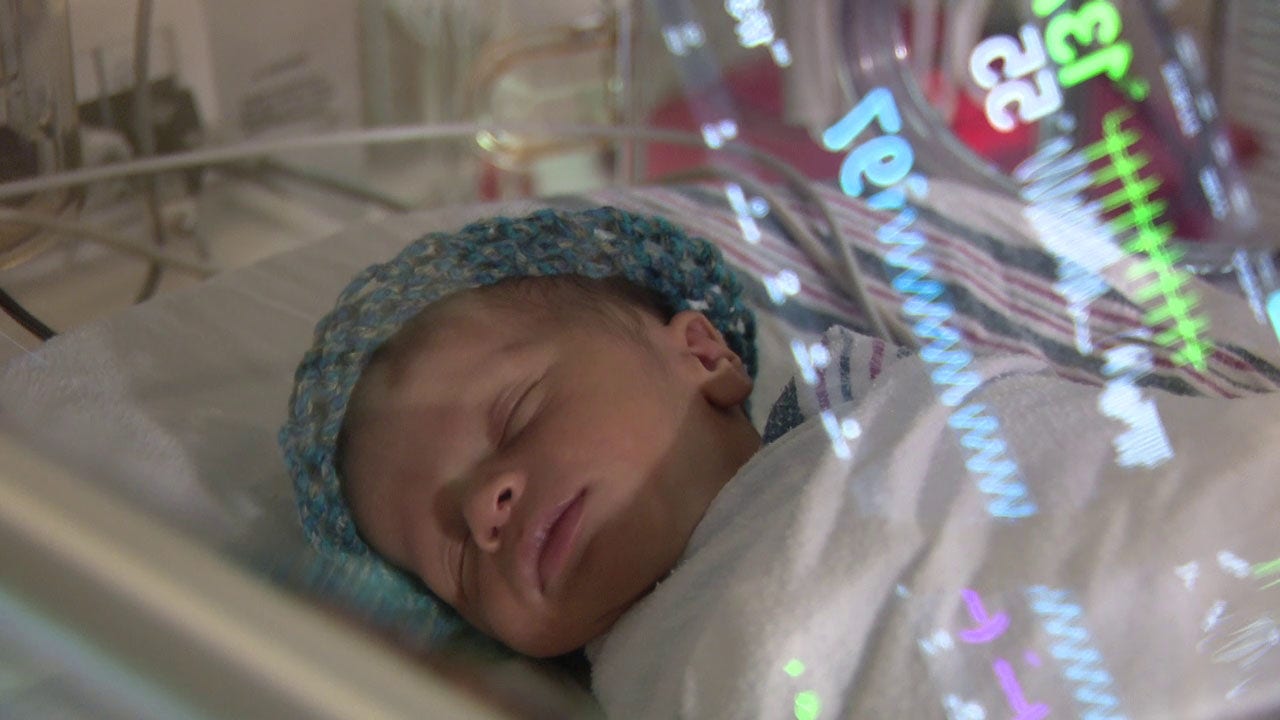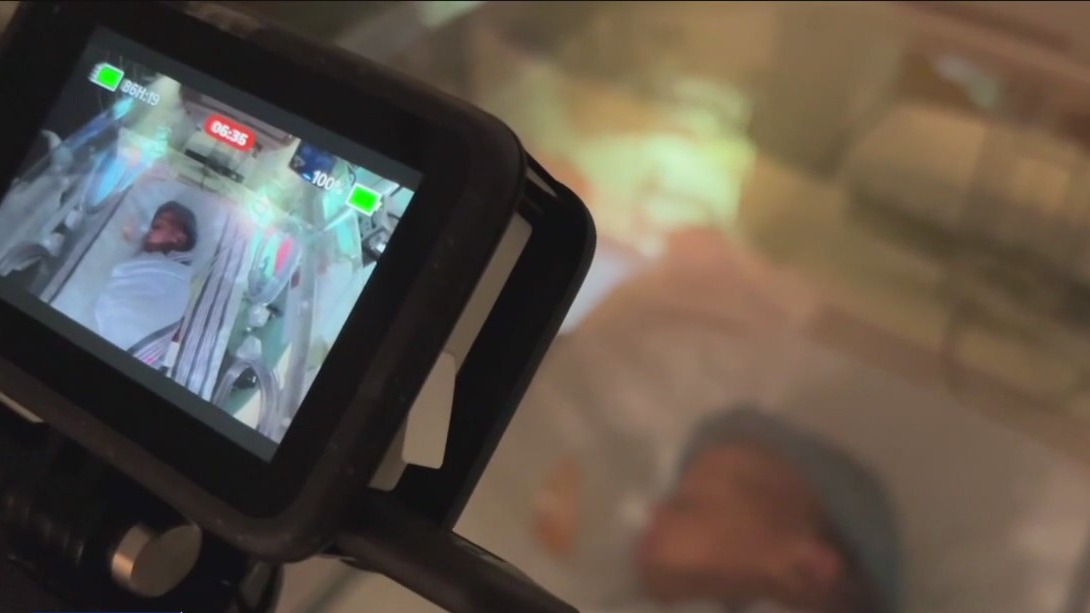
Tampa General Hospital, USF developing artificial intelligence to monitor NICU baby's pain in real-time
作者:Briona Arradondo
Published July 10, 2025 11:08pm EDT

TAMPA, Fla. - Researchers are looking to use artificial intelligence to detect when a baby is in pain.
The backstory:
A baby’s cry is enough to alert anyone that something’s wrong. But for some of the most critical babies in hospital care, they can’t cry when they are hurting.
READ: FDA approves first AI tool to predict breast cancer risk
"As a bedside nurse, it is very hard. You are trying to read from the signals from the baby," said Marcia Kneusel, a clinical research nurse with TGH and USF Muma NICU.
With more than 20 years working in the neonatal intensive care unit, Kneusel said nurses read vital signs and rely on their experience to care for the infants.
"However, it really, it's not as clearly defined as if you had a machine that could do that for you," she said.
MORE: USF doctor enters final year of research to see if AI can detect vocal diseases
Big picture view:
That’s where a study by the University of South Florida comes in. USF is working with TGH to develop artificial intelligence to detect a baby’s pain in real-time.
"We're going to have a camera system basically facing the infant. And the camera system will be able to look at the facial expression, body motion, and hear the crying sound, and also getting the vital signal," said Yu Sun, a robotics and AI professor at USF.
Yu heads up research on USF’s AI study, and he said it’s part of a two-year $1.2 million National Institutes of Health grant.

He said the study will capture data by recording video of the babies before a procedure for a baseline. Video will record the babies for 72 hours after the procedure, then be loaded into a computer to create the AI program. It will help tell the computer how to use the same basic signals a nurse looks at to pinpoint pain.
READ: These states are spending the most on health insurance, study shows
"Then there's alarm will be sent to the nurse, the nurse will come and check the situation, decide how to treat the pain," said Sun.
What they're saying:
Kneusel said there’s been a lot of change over the years in the NICU world with how medical professionals handle infant pain.
"There was a time period we just gave lots of meds, and then we realized that that wasn't a good thing. And so we switched to as many non-pharmacological agents as we could, but then, you know, our baby's in pain. So, I've seen a lot of change," said Kneusel.
Why you should care:
Nurses like Kneusel said the study could change their care for the better.
"I've been in this world for a long time, and these babies are dear to me. You really don't want to see them in pain, and you don't want to do anything that isn't in their best interest," said Kneusel.
MORE: California woman gets married after lifesaving surgery to remove 40-pound tumor
USF said there are 120 babies participating in the study, not just at TGH but also at Stanford University Hospital in California and Inova Hospital in Virginia.
What's next:
Sun said the study is in the first phase of gathering the technological data and developing the AI model. The next phase will be clinical trials for real world testing in hospital settings, and it would be through a $4 million NIH grant, Sun said.
The Source: The information used in this story was gathered by FOX13’s Briona Arradondo from the University of South Florida and Tampa General Hospital.
